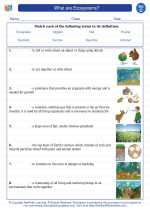Nutrient Cycling
Nutrient cycling is the movement and exchange of organic and inorganic matter back into the production of living matter. It involves the continuous exchange of nutrients between the biotic and abiotic components of an ecosystem. This process is crucial for the sustenance of life on Earth.
Key Nutrients Involved
The primary nutrients involved in nutrient cycling include carbon, nitrogen, phosphorus, and sulfur. These nutrients are essential for the growth and development of living organisms and are cycled through the ecosystem in various forms.
Processes of Nutrient Cycling
Nutrient cycling involves several key processes:
- Decomposition: Dead organic matter is broken down by decomposers such as bacteria and fungi, releasing nutrients back into the soil.
- Assimilation: Plants and other producers take up nutrients from the soil or water to build organic compounds.
- Consumption: Consumers obtain nutrients by consuming other organisms.
- Excretion: Waste products from living organisms contain nutrients that can be recycled back into the ecosystem.
- Weathering: Physical and chemical processes break down rocks, releasing minerals and nutrients into the environment.
- Fixation: Certain bacteria and other organisms convert atmospheric nitrogen into forms that can be used by plants.
Importance of Nutrient Cycling
Nutrient cycling is essential for maintaining the balance of nutrients within an ecosystem. It ensures that essential nutrients are continuously available for the growth of plants and other organisms. Additionally, nutrient cycling helps to sustain soil fertility, supports the growth of crops, and contributes to the overall health of the environment.
Study Guide
To understand nutrient cycling, it's important to study the following concepts:
- The role of decomposers in breaking down organic matter
- How plants assimilate nutrients from the soil
- The impact of consumer behavior on nutrient cycling
- The process of nitrogen fixation and its importance
- The relationship between nutrient cycling and soil fertility
By understanding these concepts, you will gain a comprehensive understanding of the importance and mechanisms of nutrient cycling in ecosystems.
.◂Science Worksheets and Study Guides Third Grade. What are Ecosystems?
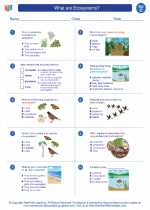
 Worksheet/Answer key
Worksheet/Answer key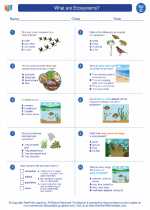
 Vocabulary/Answer key
Vocabulary/Answer key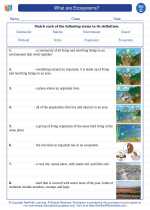
 Vocabulary/Answer key
Vocabulary/Answer key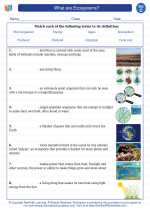
 Vocabulary/Answer key
Vocabulary/Answer key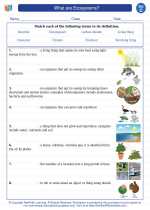
 Vocabulary/Answer key
Vocabulary/Answer key